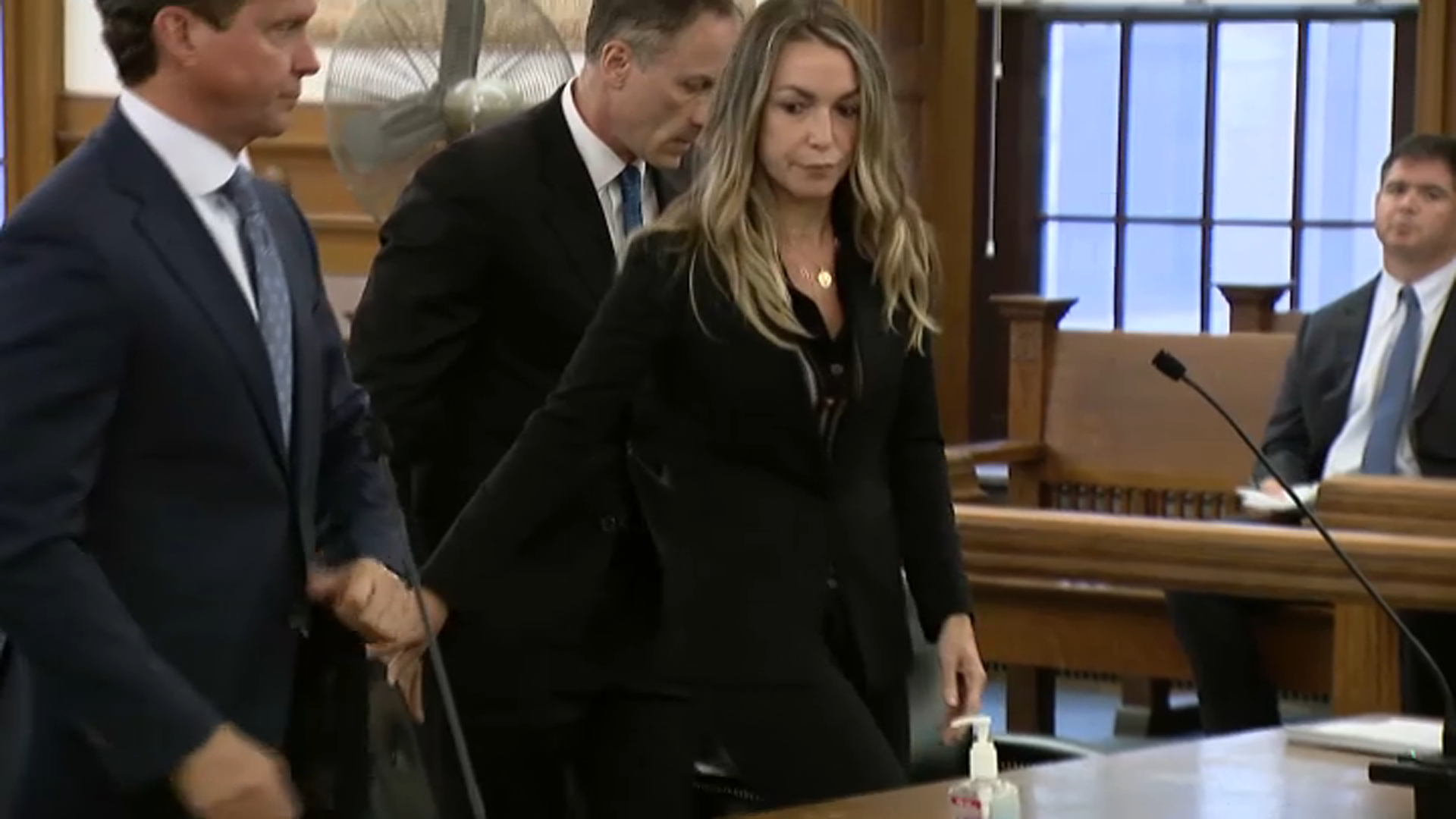The pre-trial court battle has continued to simmer in the second-degree murder case over the 2022 death of a Boston police officer outside a Canton, Massachusetts, home, with more twists possible later this week.
Late Friday, the judge handed a victory to the team of defendant Karen Read, the Mansfield woman whom prosecutors accuse of hitting her boyfriend, John O'Keefe, with her SUV and leaving him to die in the snow in January 2022 after a night of drinking with friends.
Norfolk Superior Court Judge Beverly Cannone granted Read's legal team's request for access to records involving a dog that lived at the home where O'Keefe died.
If the dog was proven to have bitten O'Keefe, it would help prove that Read is innocent, her lawyers say — a part of their broader theory that O'Keefe was killed at the home and that accusing Read is part of a coverup protecting whoever did kill the officer.
Get Boston local news, weather forecasts, lifestyle and entertainment stories to your inbox. Sign up for NBC Boston’s newsletters.
Prosecutors have suggested that's a wild conspiracy theory.
"If in fact the dog and the victim had an interaction, that would undercut almost all of the government's case that he never entered the house," legal analyst Michael Coyne told NBC10 Boston Monday.
Also Monday, prosecutors asked the judge to deny Read's lawyers access to further evidence, information involving the homeowner's cellphone, a request that was set to be discussed at a hearing scheduled for Thursday.
Two other requests were filed Monday, from lawyers for people accused by the defense of being involved in O'Keefe's death. They are the homeowner, another Boston police officer named Brian Albert, and his sister-in-law Jennifer McCabe.
Their lawyers asked the judge to block the defense from calling them as witnesses. In his motion, McCabe's lawyer wrote that "the subpoena is vexatious and is calculated to humiliate and harass" her.
Neither Albert nor McCabe has previously responded to requests for comment from NBC10 Boston.
Sign up for our Breaking newsletter to get the most urgent news stories in your inbox.
The evidence about the dog that the judge allowed the defense to pursue involves a pet of Albert's. He testified to a grand jury that the dog was inside the house or in the back yard, which is fenced in, on the night of O'Keefe's death, but an expert hired by Read's lawyers has said that the injuries to O'Keefe's right arm appear to be from an animal attack, not from being hit or dragged by a vehicle.
Since Albert has testified that O'Keefe never came inside and the dog never went outside, Read's lawyers say, it would indicate O'Keefe went inside the house, undercutting prosecutors' claim that he was killed by Read's SUV.
Albert has said he sent the dog to Vermont last year, according to the defense, which is looking for information from the town of Canton about the dog, including information about it being rehomed. Town officials have refused to turn that information over without an order from the court.
For the defense, the judge's decision to allow them access to those records "is good and bad news," Coyne said. "If the DNA shows that it isn't likely, then they have lost one of their arguments, but if there is any support for it found within the scientific evidence, that is a significant victory for the defendant."
Read's lawyers are now hoping that the judge will give them the same leeway to search the information on the cellphones of other people who were at the home the night of O'Keefe's death to see if it may shed more light on what happened that night. They have previously claimed that McCabe searched on Google, "Ho[w] long to die in cold," hours before prosecutors said 911 was called to report O'Keefe's body.
Prosecutors have argued that the defense was misinterpreting data from the cellphone when asserting the search was made overnight.
"I think the judge will be cautious in giving them too much latitude but the defendant is allowed to provide a defense and an alternative theory of how the victim die," Coyne said.
The case has attracted attention in Canton and beyond, first because a Boston police officer had died, then because of Read's lawyers' incendiary coverup claims.
Coyne said the defense's motions about evidence are an effort to introduce reasonable doubt at trial, since a criminal prosecutor must prove a case beyond reasonable doubt. The lawyers "have a few irons in the fire at this point" that could amount to serious issues.
"Each of these little problems that the defendant is able to raise and chip away at the government's case potentially creates reasonable doubt," Coyne said.
More on the trial of Karen Read



